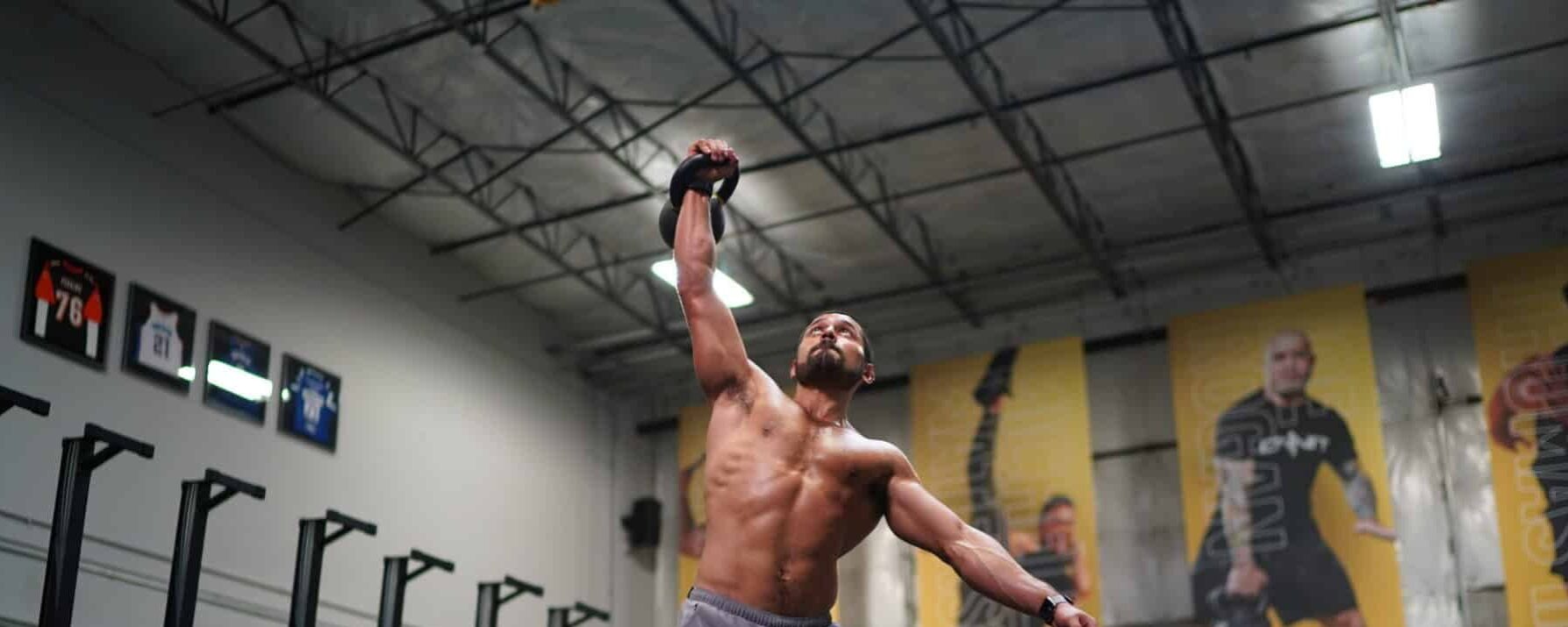
Ah, the dreaded Plateau.
You know, as much as we hate it and feel like we’re the only one’s experiencing it, the reality is: nearly everyone deals with The Plateau at some point (and even multiple times) during their fitness journey.
So remember: as frustrating as they can be, you’re not alone in your struggle, and countless others just like you have broken through using just a few strategies.
Let’s dive into them, so you can break through!
Tips To Break Through A Plateau

Typically (and especially when we’re trying to lose fat) hormones are the primary reason we plateau. Our bodies are extremely adaptable, which means they readily detect changes in the type of food we’re consuming, our calorie input and output, and our activity levels.
Once our body detects these new changes, it adjusts our hormone levels in order to maintain homeostasis (i.e.: our current physique). This is especially true when we try to lose weight too quickly and drop our calorie count too low: our body responds by rapidly adapting to the situation and, perceiving that it’s “starving,” will begin to release hormones that conserve body fat.
And voila: plateau!
This is why you’ll see that the tips below are focused on “switching things up,” as this helps re-calibrate your hormones so that you keep losing fat and building muscle.
1. Switch Up Your Workouts
If you’ve been doing the same routine for a few weeks now, it’s time to switch things up.
As I mentioned earlier, your body (which includes your muscle groups) adapts very quickly to repeated pressure, weight, and movement.
Studies even back up this phenomenon, showing that 12-week regimes of varied exercises are far more effective in building muscle than maintaining the same exercise routine day after day.
The same is also true for fat loss. As we repeat the same style of exercising, our body adapts, and these exercises become “easier” (aka: we expend less calories to perform them) which results in less fat burn.
This is one of the reasons having a varied exercise regime is so effective: your body doesn’t necessarily get a chance to adapt, which causes it to steadily build muscle and/or drop fat.
If you’ve been doing longer, steady-state cardio sessions like walking or jogging on a treadmill or outside for 30 minutes to an hour, switch this up and try some HIIT (high-intensity interval training) workouts a couple times per week instead.
Check out this kettlebell and bodyweight HIIT >>>
And, if you’ve been lifting with higher reps and the weight is no longer challenging, reduce your reps into the 6-8 range with heavier weight.
Try these changes out for a couple weeks and note any difference.
2. Switch Up Your Diet
Like training, your body also adapts not only to your calorie intake, but also the type of foods you’re eating.
For instance, let’s start with calorie intake: if you started your journey with a certain intake, it’s likely that as your muscles have grown, or as you’ve dropped some fat, your calorie requirements have gone either up (in the case of building) or down (in the case of dropping weight).
Now, if you’re in the process of trying to build and you’re also doing HIIT workouts, you might want to consider upping your calories slightly (300-500/day) for a few weeks and seeing what happens. If you’re trying to build and eating low carb, try adding a few days of higher-carb (clean carbs) into your regime.
If you’re trying to lose fat, I wouldn’t recommend dropping your calories too low: first I would add in HIIT workouts before lowering, and if that doesn’t move things, I would (first) cut out any and all processed sugar (fruit is fine), and vary your carb intake. So if you’ve been extremely low carb, add in some clean carb sources. If you’ve been moderate carb, reduce that slightly and replace it with healthy fats and protein.
To be clear, none of these shifts has to be extreme. You don’t have to go keto or high-carb, just vary what you’re eating if you’ve been eating in a particular style for over a month.
3. Make Sure You’re Getting Quality Sleep
Interestingly, lack of sleep can put a major wrench in your performance progress (and health in general). In fact, not getting enough sleep, even just for a short while, can have a dramatic effect on testosterone levels, which plays a huge role in both muscle gain and fat loss.
Studies have shown that just a week of sleep loss lowered testosterone levels by up to 15% in group of healthy young men, so be sure you’re getting those 8 hours!
If you’re having trouble sleeping, try:
• Blocking out ALL sources of light without blackout curtains and turning off even the smallest electronics (light disrupts melatonin production)
• Avoid screentime at least a hour before bed (phones, computers)
• Make sure you’re getting enough magnesium
4. Reduce Stress
Stress is another biggie that can easily result in a plateau. The infamous stress hormone, cortisol, is elevated during stress, which can result in higher blood sugar and insulin levels, making it more difficult to drop fat, as well as reduced testosterone levels, making it harder to gain muscle.
If you’re experiencing high levels of consistent stress, try:
• Adaptogen herbs, like rhodiola rosea or ashwaghanda, as well as magnesium and relaxing herbs like chamomile (many of these are also found in Onnit’s New Mood, which I personally use. Use code: PRIMAL to receive my discount!)
5. Make Time For Recovery
To improve, your foundation has to be solid … and that foundation is, first and foremost, a healthy body. If you’re overworking yourself physically, your mental and hormonal health is likely being overworked as well … and this will eventually lead to burnout.
Make sure you’re getting 1-2 days of recovery every week, as this will give your muscles adequate time to repair, and help prevent stress hormones from taking over.
To Recap
• Switching up your workouts can kickstart fat loss
• Switching up your diet or the foods you’re eating can re-stimulate certain hormones that may stagnate on the same, repetitive diet and calorie count
• Sleep is crucial for fat loss and recovery – be sure you’re getting a quality 8 hours
• Stress hormones can interfere with fat loss and muscle gain
